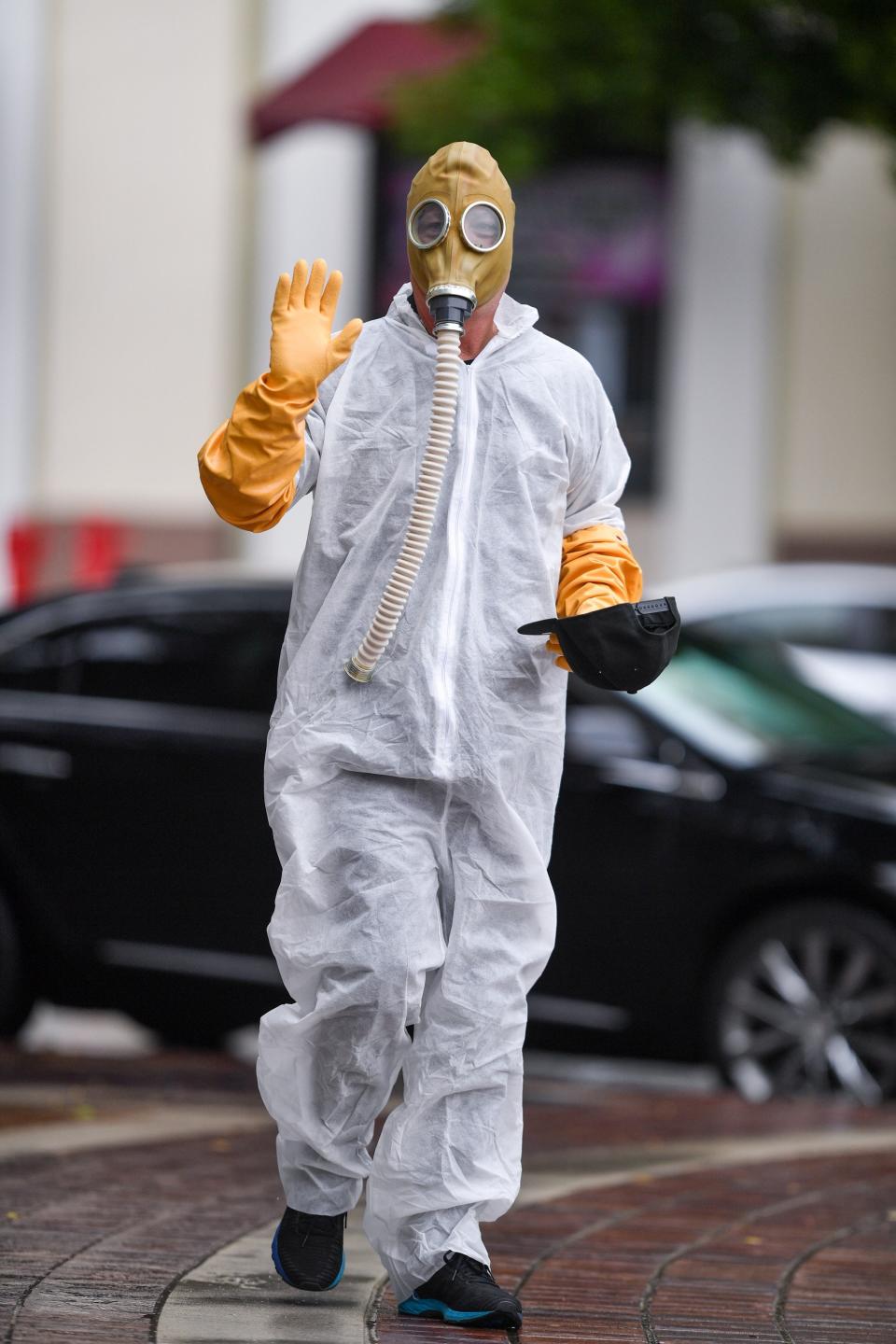This Celebrity-Favorite Outfit Is a Serious Look, but It Won’t Protect You From the Coronavirus
As coronavirus panic ramps up, people are zinging around novel (and useless) approaches to combating the virus: eating garlic, sipping water every 15 minutes, doing cocaine, drinking bleach, and spraying yourself down with chlorine. And, if you astutely follow the goings-on of celebrities, you might be under the impression there is another way to inoculate yourself from COVID-19: serving looks. Yesterday, supermodel Naomi Campbell and the comedian Howie Mandel both appeared out in public wearing elaborate hazmat suits as a way to protect themselves from the virus. “Safety First NEXT LEVEL,” Campbell wrote in an Instagram caption. Mandel, famously germaphobic, merely posed for photographers. They appear to be models of health—completely immune from the increasingly scary virus. But a health expert says that the suits are about as effective as cocaine or garlic in the fight against coronavirus.
“It's fun,” says Dr. Ashish K. Jha, director of the Harvard Global Health Institute. “But from a safety and hygiene point of view, it's a little bit of a disaster.”
Like the surgical masks that are now as hot as Supreme box-logo tees, these sort of protective measures are really only useful for those already infected, hoping to protect others when forced to leave quarantine. But attempting to use a hazmat suit to avoid coronavirus might actually have the opposite result, according to Jha.

Celebrity Sightings In Los Angeles - March 10, 2020
The trick is that protecting yourself is not as simple as just putting on a hazmat suit—it’s that removing one requires extensive training. “Normally, there is a specific protocol you have to follow, or you end up actually infecting yourself,” says Jha. “One of the ways many of the healthcare workers got infected during the Ebola outbreak was because even though they had training, they weren't able to very carefully follow the right rules for how to take these outfits off.” Think of it this way: Jha says that one of the most critical steps to avoiding exposure is not touching your face, but wearing a mask requires you to do exactly that.
Jha’s second concern is that the hazmat suit has a way of feeling like a superhero costume. “My guess is they probably feel more invincible because they're like, ‘I'm in a hazmat suit,’” he says. “So they're probably going to be less careful.” Campbell alluded to this feeling of security in an Instagram comment: “It’s how I feel safe traveling when I have to,” she wrote.
Campbell is already famously cautious when flying under normal circumstances. A video of her using gloves and anti-bacterial wipes to sanitize every surface on her seat went viral last summer. “This is what I do on every plane I get on,” she said. “I do not care what people think of me. It's my health and it makes me feel better." Here, Campbell’s advice is gold: ignoring the judgement of others for the betterment of her health—and, consequently, that of others—is exactly the standard we should all hold ourselves to.
And if you’re dead set on suiting up, think again: If enough people try to get coronavirus-chic and cause a run on hazmat suits, there might not be enough for the medical professionals we want—and need—to have ample protection. So what should you do if you’re concerned? Jha’s advice might sound repetitive, but he says that the best way to protect yourself from coronavirus doesn’t involve chlorine, cocaine, or elaborate outfits. “There is a really effective way of avoiding getting sick,” he says, “and that's called washing your hands with soap and water.”
Originally Appeared on GQ

